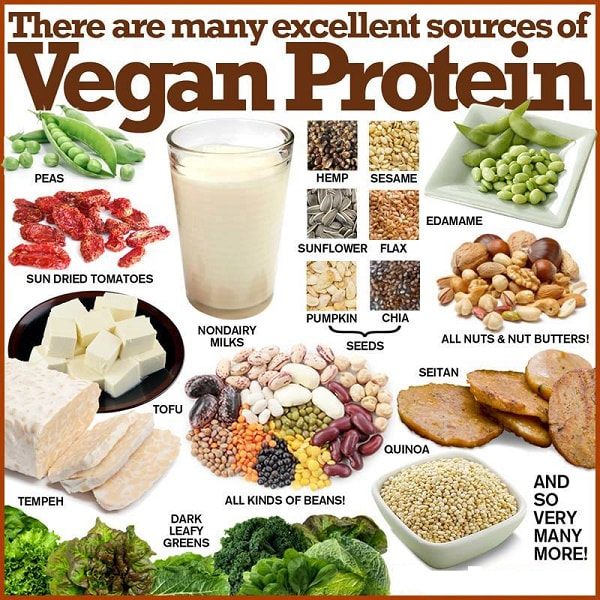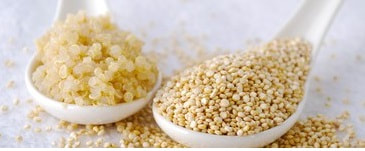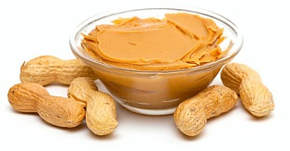|
RDNs across the world advise on going meatless at least once a week to reap the benefits of a plant-based diet. Unconditional of your background, vegetarians, vegans and meat eaters should embrace vegetarianism whenever possible to reduce the risk of diseases such as cancer, heart disease, diabetes and obesity. Every time nutrition experts advocate plant-based foods, people often question on the protein adequacy of these diets. The best thing here is that, plant sources are not only good sources of protein but also provide us with quite amazing benefits like an increased intake of fiber, potassium and disease-fighting phytonutrients and a decreased consumption of saturated fat and cholesterol. Given here are four simple tips to make plant-based proteins a regular part of your diet. Plant Proteins Take Up the Center Stage Beans and lentils which are packed with proteins, fiber, vitamins and minerals are cost-effective, easy to cook and available in numerous varieties. These are low in fat with zero cholesterol, making them an excellent source of protein. They come in dried, canned, frozen and fresh types. RDNs laud soy products, such as tempeh and tofu, for their wholesome protein content and versatility. These can be used to make anything, from breakfast to dessert. Tofu, which is available in numerous textures — from soft to firm — is used in “cream” soups, stir-fries and non-dairy desserts. Tempeh, a fermented soybean product, tastes delicious when marinated or grilled and is used in place of chicken in mock chicken salad and is the best replacement for pork-based dishes. Eggs and dairy products, though not consumed by many vegetarians, are great sources of high-quality protein. These contain cholesterol and saturated fat, and hence must be taken in restricted quantities daily. Choose low-fat or fat-free milk and yogurt, use cheese only to add flavor to dishes and restrict your egg consumption to one egg per day on an average. Focus on Variety Each of the foods, with fruits and nuts being the only exceptions, are loaded with some quantity of proteins. Indulge in consuming a wide variety of foods throughout the day to meet your daily protein requirements. For example, a cup of cooked spinach has about 5 grams of protein and a cup of cooked broccoli contains about 4 grams. Registered dietitian nutritionists (RDNs) cheer on such intakes because the Recommended Daily Allowance for protein is 56 grams for adult men and 46 grams for adult women every day. Nuts and seeds are also great sources of protein which can be added to meals or snacks. Their variety and versatility, for example, ½ cup of cooked quinoa contributes about 4 grams of protein while 2 tablespoons of peanut butter provide 8 grams, makes them a worthy protein source. Store your Veggie Burger for Special Occasions
A meat analog or substitute is a manufactured food product made to mimic the look and taste of common meat products such as veggie burgers. Dietitians recommend on consuming meat analogs on special occasions after reading the labels carefully as they tend to be heavily processed with increased fat, sodium and sugar content. Work along with your RDN to Solve Food Sensitivity or Intolerance Plant protein options become a little difficult for people with gluten sensitivity and allergies to soy, milk, eggs, nuts and peanuts. In such cases, it is better to work along with an RDN specializing in food allergies and sensitivities to chart out a tailor-made diet plan keeping in mind the nutritional requirements and customer allergies. Get in touch with a renowned RDN at www.firsteatright.com to help you with your diet prescriptions. RDNs can also help you with reading food labels to avoid allergic foods and teach you basic cooking skills to prepare foods which you can eat peacefully.
0 Comments
Leave a Reply. |
AVOID FRAUD. EAT SMART.+91 7846 800 800
AuthorDietitian & Nutritionist Dr. Nafeesa Imteyaz. Archives
July 2024
Categories
All
Dr. Nafeesa's Blog @blogspot |
- Home
- Written Testimonials
- Consult
- Clinics
- Blogs
-
Diet & Nutrition
- Diabetes Reversal
- IVF IUI not needed for PCOS PCOD Infertility
-
Medical Nutrition
>
-
Disease & Conditions
>
- Infertility | PCOS
- Diabetes Mellitus
- Cholesterol
- Hypothyroid
- Kidney Problems
- Hypertension
- Cardiovascular Diseases
- Liver Diseases
- Gastro intestinal disorder
- Cancer
- Metabolic Disorders
- Orthopedic Disorders
- Eating Disorders
- Dietary Recall
- Weight Record Filled By Clients
- Online Payment Transaction Details
- Online Clients Weight Check Form
- Our Program Package Service Charges
- Weight Record 2017 Clients
- Measurements sent by Clients
- Terms & Conditions Of Payment
- Thanks. Your Form is Submitted
- Video Testimonials
- Lifestyle & Wellness
- Lifestyle & Wellness Blog
- Allergy & Intolerance
- Weight Loss / Gain
- Weight Loss / Slimming Blog
-
Disease & Conditions
>
- Life Cycle Nutrition >
- Sports Nutrition >
- Integrity in Nutrition
- Knowledge Centre
© COPYRIGHT 2022. ALL RIGHTS RESERVED. FRST HEALTHCARE PVT LTD.
Dr. Nafeesa Imteyaz of First Eat Right clinic, is the Best Dietitian Nutritionist in Bangalore. Best Dietitian Nutritionist in Pune. Best Dietitian Nutritionist in Hyderabad. Best Dietitian Nutritionist in Chennai. Best Dietitian Nutritionist in Mumbai. Best Dietitian Nutritionist in Delhi. Best Dietitian Nutritionist in Kolkata.




